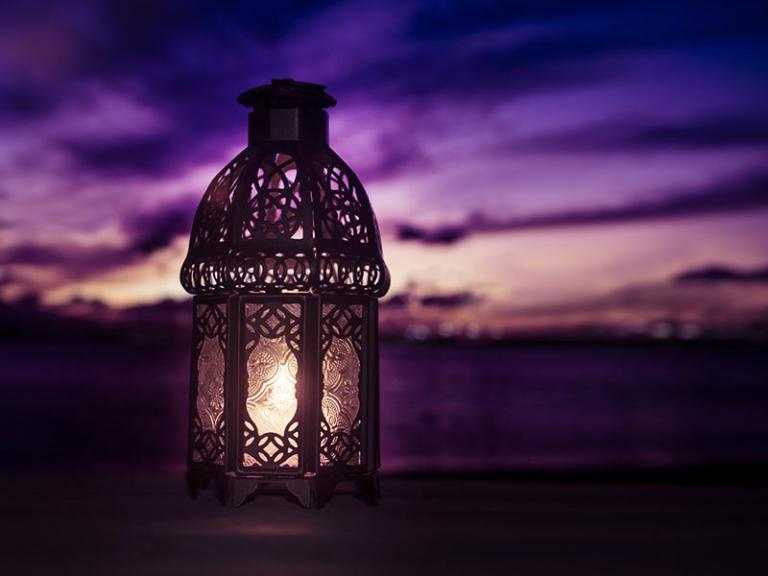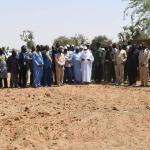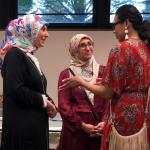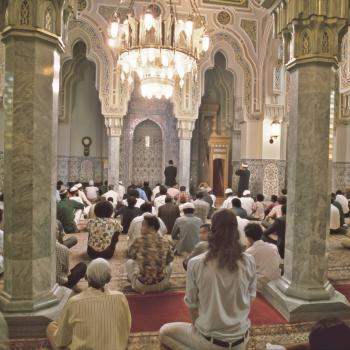
By Rabiah York Lumbard
Fasting as an act of religious devotion is appreciated throughout the world’s religions. It is of central importance to the religion of Islam. As one of the five pillars, Muslims worldwide wake up at insane pre-dawn hours to eat and drink so that they might refrain from these same necessities until the call to maghrib is heard and night descends. They repeat this routine for an entire month straight with joy and passion and a great deal of patience. It is a beautiful sight to behold, especially when it’s genuine.
But for some of us, Ramadan is a time of self and/or community-induced disappointment. Either we want to fast, but are unable to (there are many legitimate reasons which prevent Muslims from fasting) or we are plain old struggling. The stresses can be internal or external. Perhaps we are not particularly religious or perhaps we’re overwhelmed by work or family life. This is particularly true for Muslims living in the West where work days remains regular and long.
After years of successful and then unsuccessful fasting (due to health-related issues) I’ve concluded that what many of us need is a change of perspective. A return, if you will, to the beginnings of Islam. A return to simplicity. A return to the inward dimensions of our beautiful faith.
According to Muslim tradition, the very first time the Prophet Muhammad received revelation he was meditating in a cave alone in the foothills of Mecca. The angel Gabriel suddenly appeared, urging the Prophet to repeat the following verses, “Recite in the Name of thy Lord who Created, created man from a blood clot. Recite! Thy Lord is most noble. Who taught by the Pen, taught that which he knew not.” (96: 1-5). This seminal event without which Islam would not be—happened during the month of Ramadan. And this is what Ramadan is fundamentally about—the gift of revelation. Ramadan is a month of gratitude, a month in which Muslims celebrate the act of revelation. And even though we specifically honor the Quran—we also recognize that God has spoken to other communities and that even the book of nature is a revelatory act.
Ramadan is more than fasting
When I realized what Ramadan was really about—the Quran—I experienced a deep sense of relief. I am not, of course, trying to downplay the place of fasting. Sawm, as it is known in Arabic, is mentioned 14 times throughout the Quran. But Ramadan is only mentioned once. What it says about Ramadan is particularly insightful.
As 2: 185 says, “The month of Ramadan is that wherein the Quran was sent down as guidance to mankind, as clear proof of guidance, and as the Criterion. Let him among you who is present fast during that [month]. And whosoever is ill or on a journey, it is a number of other days. God desires ease for you, and He does not desire hardship for you. [It is] so that you may complete the number and magnify God for having guided you, that you may give thanks.”
That. You. May. Give. Thanks.
God does not want to burden us. If you can’t fast or aren’t fasting (for whatever reason), there are numerable ways you can celebrate. Return, if you will, to your own origins. Return to the cave of the heart. Fast from Netflix. Fast from whatever or whomever is polluting your soul. Read some Quran, do some dhikr. Study the Prophet’s life. Take a quiet stroll in a nearby park and revel in God’s creative spark. Be kind to yourself and to those around you. For even though Ramadan is known as the month of fasting, it is also known as the month of repentance (Shahr-ut-Tawba), of nightly prayers (Shahr-ul-Qiyām), forgiveness (Shahr-ul-Ghufrān), of faith (Shahr-ul-Īmān), and my favorite, the month of virtue and beauty (Shahr-ul-Ihsān). There are so many ways we non-fasters can participate.
In conclusion, if you are one of the strugglers or the non-fasters who are looking for your way “in” then look no further than the Quran itself. As the verse that immediately follows 2:185 says, “When My servants ask thee about Me, truly I am near. I answer the call of the caller when he calls Me. So let them respond to Me and believe in Me, that they may be led alright” (2:186).
Call on Him in whatever state of worthiness or unworthiness you perceive yourself to be. He’s near. He’s with you.
Yes, you.
Alexis York Lumbard aka Rabiah York Lumbard (Facebook) is an American Muslim children’s book writer whose debut picture book, The Conference of the Birds with illustrations by renowned artist Demi (Wisdom Tales Press, Sept. 2012), is a contemporary retelling of the classic Islamic work by the 13th century poet and Sufi Farid ad-Din Attar. She is also the author of the picture book The Gift of Ramadan (Albert Whitman, 2019) and the upcoming YA thriller No True Believers (Crown,2020). She currently lives in the Doha with her husband and three daughters. An active member of The Society of Children’s Book Writers & Illustrators (SCBWI), Alexis regularly visits schools, mosques and libraries to share her passion for books, storytelling and the various places she calls home (Qatar, Washington DC and Nashville, TN). With a B.A. in Religious Studies from George Washington University, Rabiah is currently pursuing an MFA program in Creative Writing at Spalding University.













